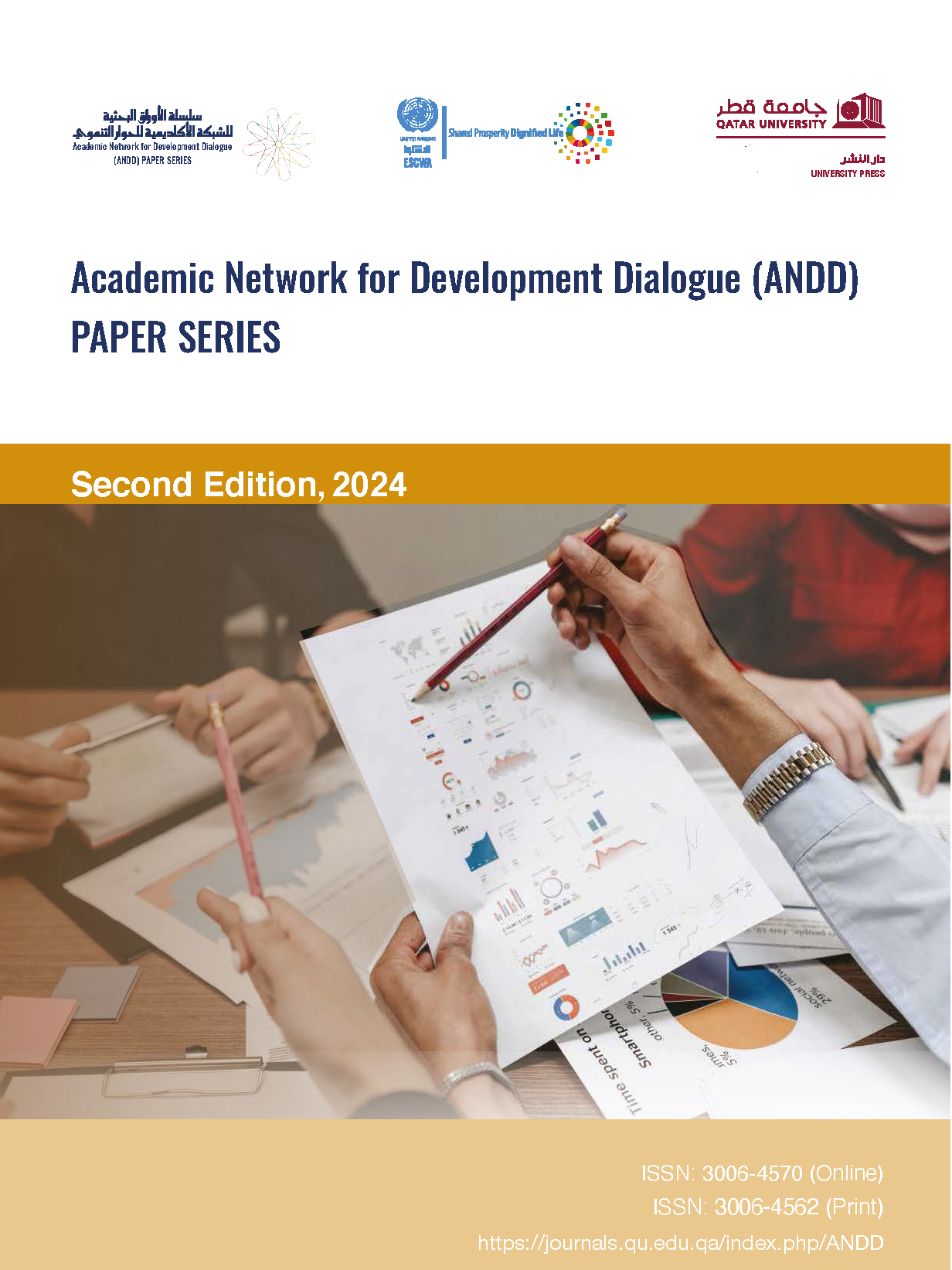Sustainable Development in the Education System in the Arab Region
Abstract
Focusing on nurturing human well-being is crucial for developing a sustainable future. Well-being in education and scientific research fosters engaged, motivated, and enthusiastic individuals in society. These sectors are key to human development; empowering individuals with the necessary tools that directly impact performance and productivity, leading to better learning outcomes and more advanced scientific contributions. This paper aims to investigate innovative solutions and policy tools for enhancing human well-being and research-based learning in the Educational System in the Arab Region. Its objectives are to raise awareness, identify challenges, and recommend policy tools to improve the well-being of students and researchers. Methods used included case studies, literature reviews, comparative analysis, and personal experiences. The paper focuses on the issue of a fixed mindset culture within the educational system and stakeholders in the Arab Region. The goal is to shift from an inherited fixed mindset to a growth mindset, requiring reprogramming, extensive research, and implementing alternative educational methodologies. Raising awareness and educating parents and students about the benefits of a growth mindset is crucial. A key recommendation is to replace final exams with research papers and capstone projects, which can accelerate sustainable development by promoting critical thinking, problem-solving, and research skills. This educational approach reduces test anxiety, improves performance, and allows students to address real-world issues beyond theoretical knowledge. By scanning the literature and case studies on this subject, the paper discusses how integrating social and emotional learning into educational curricula and research organizations provides essential pedagogy to equip learners with the skills necessary to strengthen their well-being and promote 21st-century learning. This holistic approach enhances individual development and contributes to the broader goal of sustainable development. Since human well-being is one of the SDG goals, our research focuses on promoting it as an attempt to help the whole education system achieve sustainability.
##plugins.themes.bootstrap3.article.details##
Social and emotional learningFixed mindsetGrowth mindsetStakeholders
Blackwell, L. S., Trzesniewski, K. H., & Dweck, C. S. (2007). Implicit theories of intelligence predict achievement across an adolescent transition: A longitudinal study and an intervention. Child Development, 78(1), 246-263. https://doi.org/10.1111/j.1467-8624.2007.00995.x
Diener, E., & Chan, M. Y. (2011). Happy people live longer: Subjective well-being contributes to health and longevity. Applied Psychology: Health and Well-Being, 3(1), 1-43.
David, L., Mohamed, A., & Nagla, A., (2020). Policy Implementation in the Arab World: Lessons Learned and Recommendations. RCEP. UNESCO. https://rcepunesco.ae/en/KnowledgeCorner/ReportsandStudies/ReportsandStudies/01-12-2020_Ar.pdf
Dymnicki, et al. (2011). The impact of enhancing students’ social and emotional learning: A meta-analysis of school-based universal interventions. Child Development, 82, 405–432. https://onlinelibrary.wiley.com/doi/abs/10.1111/j.14678624.2010.01564-.x
Dweck, C. S. (2006). Mindset: The New Psychology of Success. Random House.
Gouëdard, P., & Valle, R. (2021). Sky's the limit: Growth mindset, students, and schools in PISA. France: OECD Publishing.
Ilham, N. (2018). The State of Education in the Arab World. Washington: Arab Center Washington DC https://arabcenterdc.org/resource/the-state-of-education-in-the-arab-world
Johnson, P. (2017). Experiential learning and field trips in education. Journal of Educational Development, 42(3), 123-135.
Khoury, et al. (2018). Selected psychiatric problems among college students in two Arab countries: Comparison with the USA. BMC Psychiatry 18, 147. https://doi.org/10.1186/s12888-018-1718-7
Muhammad, F. (2012). The Arab World’s Education Report Card: School Climate and Citizenship Skills. https://carnegieendowment.org/files/school_climate.pdf
Smith, A., & Jones, B. (2020). Well-being and sustainable education: A new paradigm. Educational Policy Review, 38(2), 87-105.
Tabari, R. (2014). Reform in the UAE: An Investigation of Teachers’ Views of Change and Factors Impeding Reforms in Ras Al Khaimah Schools. Al Qasimi Foundation. https://doi.org/10.18502/aqf.0112
TAMAM Project. (n.d.). Overview of the Program. TAMAM Project. https://tamamproject.org/overview-of-the-program
UNESCO. (2018). Education for sustainable development: Learning objectives. United Nations Educational, Scientific and Cultural Organization. https://unesdoc.unesco.org
Wals, A. E. J., & Jickling, B. (2002). Sustainability in higher education: From doublethink and newspeak to critical thinking and meaningful learning. International Journal of Sustainability in Higher Education, 3(3), 221-232. https://www.researchgate.net/publication/237152910_Sustainability_in_higher_education_From_doublethink_and_newspeak_to_critical_thinking_and_meaningful_learning


